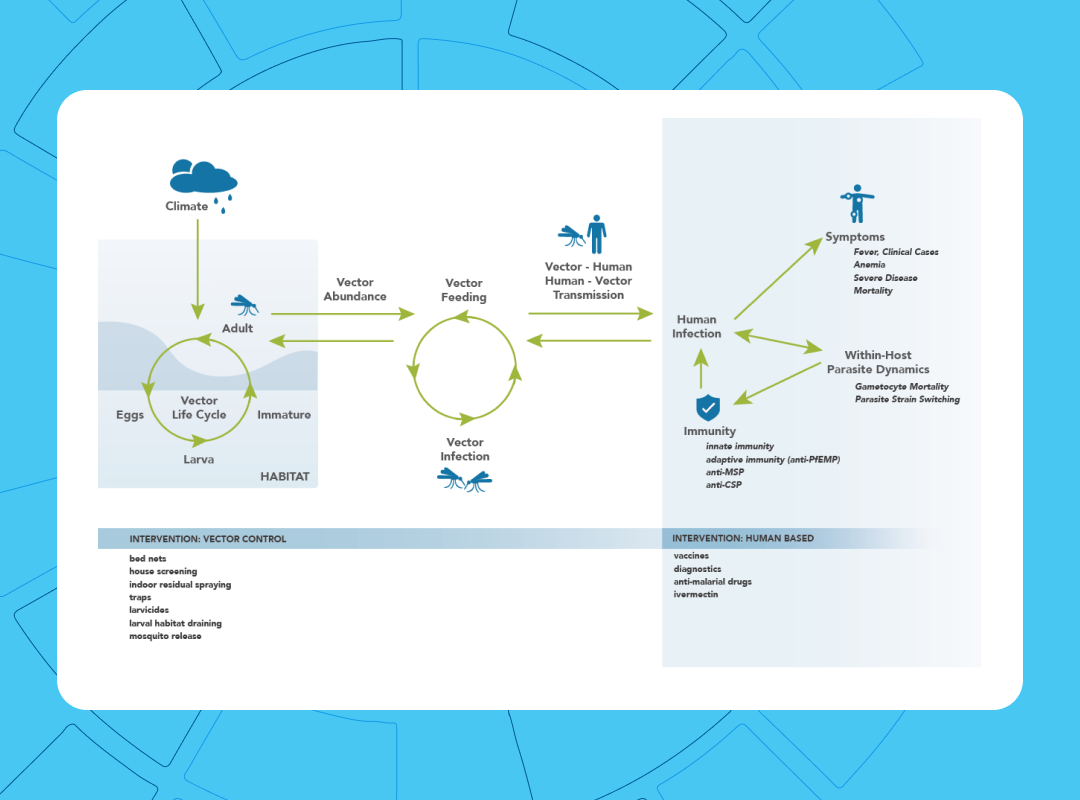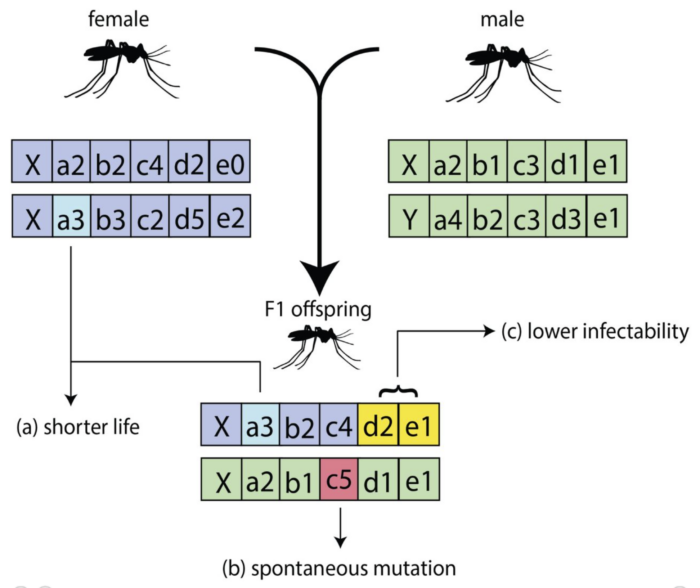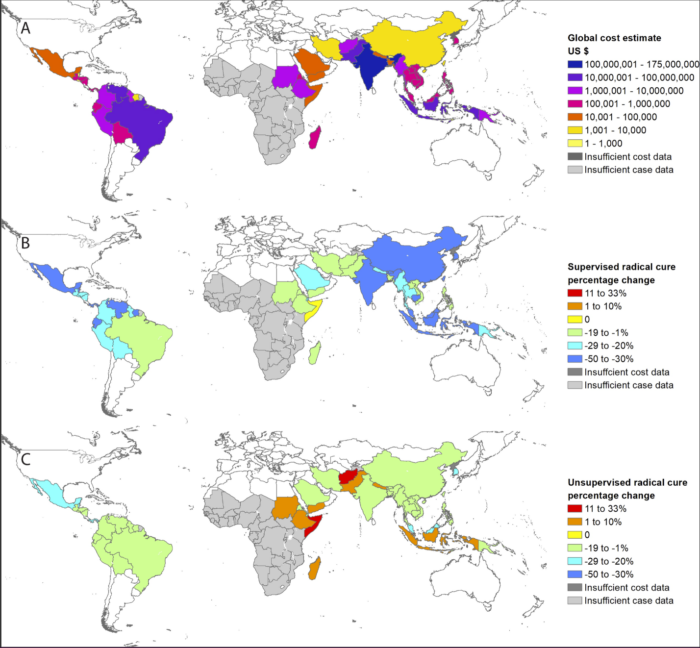EMOD malaria is a stochastic, agent-based, spatial model designed to inform policy decisions as well as investigate new interventions strategies. The within-host and transmission models allow the user to see how different interventions impact transmission. As a spatial model, EMOD malaria allows the definition of demographics, habitat, and intervention distributions in different regions as well as the migration of people and mosquitos between these regions. EMOD malaria is used by researchers around the world and available as open-source software.


Features
Features of EMOD malaria include:
- Stochastic, agent-based, spatial model: EMOD malaria is a stochastic and agent-based model that simulates spatial interactions, which helps in understanding the dynamics of malaria transmission.
- Within-host and transmission models: EMOD malaria enables users to simulate how various interventions affect malaria transmission both within the human body (within-host) and at the population level (transmission).
- Demographic, habitat, and intervention flexibility: The model allows for the specification of demographics, habitat characteristics, and intervention strategies across different regions, accounting for both human and mosquito migration patterns.
- Install and use: It is now easier to install and use with emodpy, idmtools, and Vis-Tools.
- Open-source software: The model is open-source, making it accessible to researchers globally, allowing for modifications and applications in a wide range of research settings.
Our approach
Our approach is to actively collaborate with EMOD malaria users to help build and support a community that shares knowledge, contributes to EMOD malaria, and helps one another.
The following tools help with the workflow for EMOD malaria:
- idmtools: idmtools is a collection of Python scripts and utilities created to streamline user interactions with disease models, from the creation of input files (if required), to commissioning and running simulations, through the analysis of results.
- emod-api: emod-api is the interface for Epidemiological MODeling software (EMOD) that users of idmtools interact with to create and modify EMOD simulations.
- emodpy: emodpy is a collection of Python scripts and utilities created to streamline user interactions with EMOD and idmtools.
- emodpy-malaria: emodpy-generic is a Python library with scripts and tooling to streamline user interactions with idmtools and the EMOD-Generic model.
- Vis-Tools: Vis-Tools is a collection of software tools that aids in the visualization of geospatial simulation data from EMOD.

